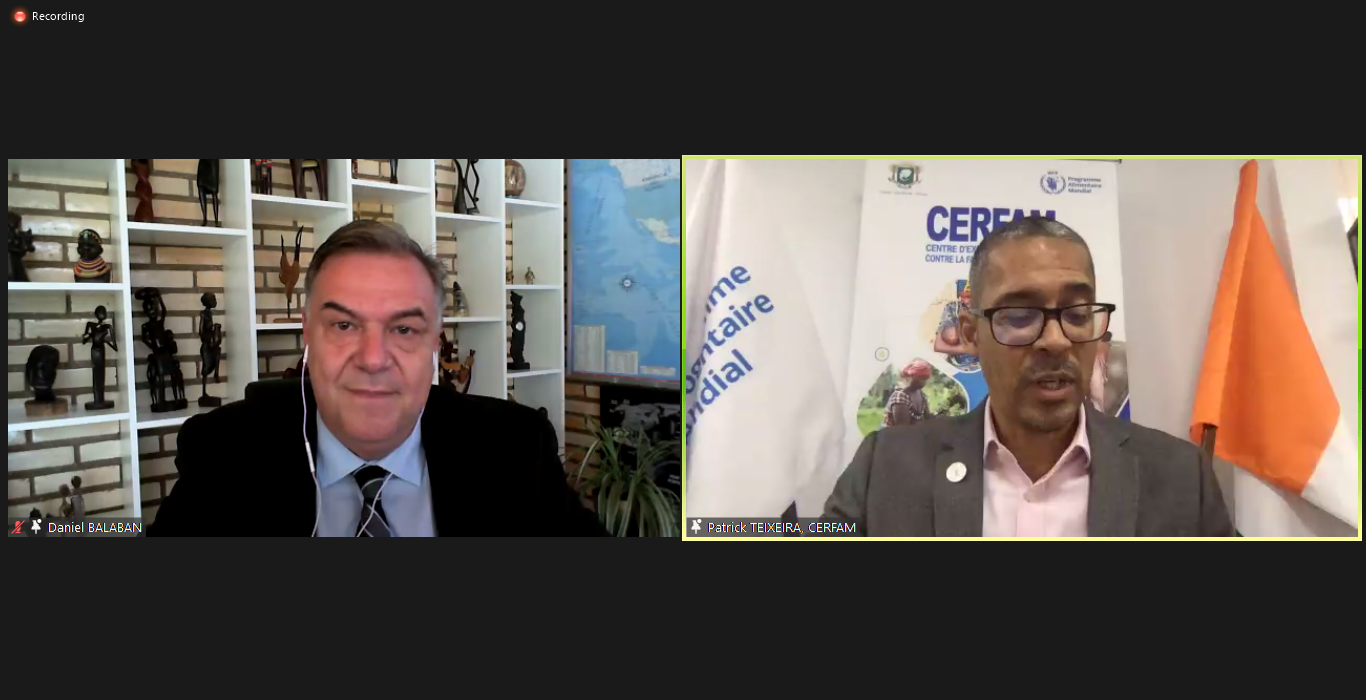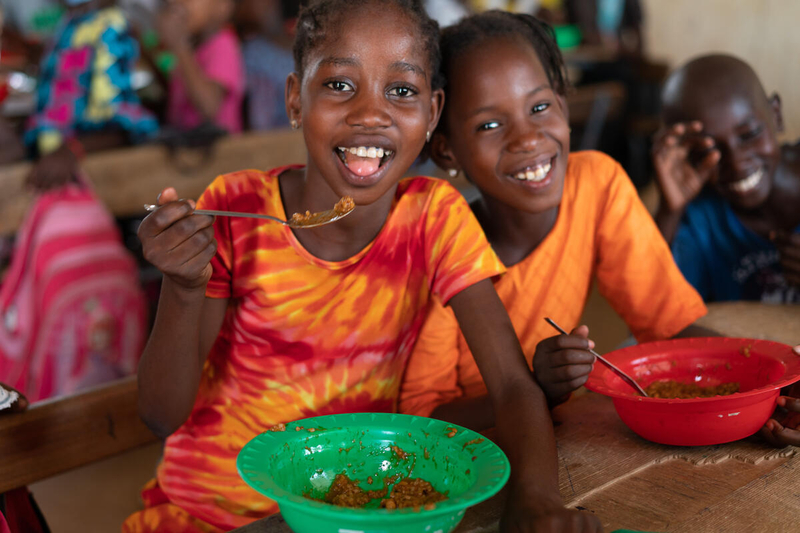
The Regional Centre of Excellence against Hunger and Malnutrition in Côte D’Ivoire (CERFAM), the Ministry of National Education of Senegal and the World Food Programme (WFP), promoted a webinar on Tuesday, February 15th, focused on experiences and best practices to ensure the funding of school feeding in African countries. Experts present at the event discussed Senegal’s experience and good practices in advocacy for school canteens, relevant data available in other African countries and opportunities for high-level engagement in this area.
Daniel Balaban, Director of the WFP Centre of Excellence against Hunger in Brazil, was one of the panellists and talked about the work of the Centre in collaboration with its various partners, including its long-term partner Senegal. Daniel Balaban highlighted important developments in the field of home-grown school feeding and the role of South-South Cooperation in promoting information exchange for strengthening school feeding programmes worldwide. He also commented on the recent challenges imposed by the COVID-19 pandemic and the threats to social safety programmes such as school feeding.
“The rapid exchange of information was one of our key achievements to improve the state of school feeding globally. We were able to exchange data and adapt to the new context brought by the pandemic and be more effective. This played a central role in helping countries to find better ways and means to implement their programmes in this context”, said Daniel Balaban. The launch of the “Virtual Study Visit: Brazil” was one of these solutions that helped countries continue to promote change even during these challenging times.
Jutta Neitzel, from WFP’s School-Based Programmes Division, talked about the Global School Meals Coalition, launched during the Food Systems Summit in September 2021 and has around 60 participant countries so far, 26 of them from Africa. She detailed the Coalition’s goals and next steps, including actions to accelerate progress, promote national and global dialogues, overcoming challenges and creating a global platform for governments.

School Feeding in Africa
Patrick Teixeira, Director of CERFAM, delivered the opening remarks and was followed by Mamadou Talla, Minister of Education in Senegal, who presented an overview of the Senegalese school feeding programme and the launch of a National School Canteen Programme, which is accompanied by advocacy strategies and strong mobilization of actors around school canteens.
Following that, Olivier Flament, Deputy Director of the WFP Country Office in Senegal, spoke about the role of strategic partnerships to advance and develop further the school feeding initiatives in the country. Next to speak was Ndioro Ndiaye, coordinator of the Group of Friends of School Feeding in Senegal (GAASS), who spoke about the group’s role in supporting the country’s school feeding initiatives and responding to food insecurity challenges working closely with school communities.
Hambanin Mashleni, representing the African Union Commission on Education, Science, Technology and Innovation, provided an overview of school feeding in the region and current challenges that require strategic interventions to give children and youth the right opportunities. Following that, Liliane Bigayimpunzi, a nutrition expert at the Global Child Nutrition Foundation (GCNF), presented data collected in the African continent as part of the Global Survey carried out in 2019, including the main characteristics of school feeding programmes in the region. The event also included experiences from school feeding programmes in Nigeria and Togo.
A recording of the event can be found here.




